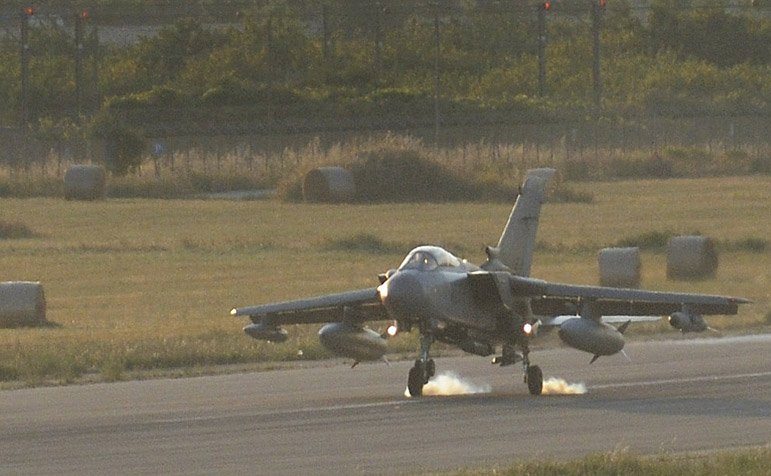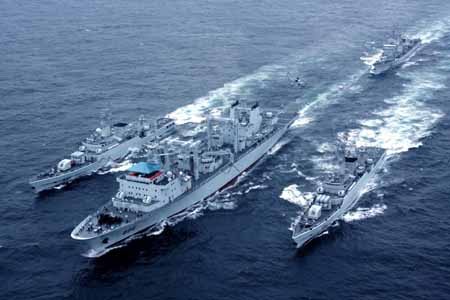The role some NATO states are playing to help Libyan rebels bring down Moamer Kadhafi puts the alliance in an awkward position after repeated denials that it works hand-in-hand with the rebellion.
British Defence Secretary Liam Fox slightly lifted the veil of secretive operations when he said Thursday that NATO was providing “intelligence and reconnaissance assets” to help rebels hunt down the elusive Libyan leader.
The British defence ministry then announced Friday that it had bombed a “large headquarters bunker” in Kadhafi’s home town of Sirte, an operation that came as rebels geared up to launch an offensive there after their Tripoli triumph.
NATO has consistently rejected claims that it is coordinating operations with the rebels, commanding special forces on the ground, or trying to kill Kadhafi since the bombing campaign began in March.
“No specific individual is a target as an individual, whether it’s Kadhafi or anybody else,” NATO spokeswoman Oana Lungescu said Thursday after Fox’s remarks.
Lungescu insisted that NATO was sticking to its United Nations mandate, limited to protecting civilians from any attacks. “There is no military coordination with the rebels,” she said.
The NATO denials are “absolute rubbish,” said Shashank Joshi, a Libyan war expert at the Royal United Services Institute in London.
“It’s a necessary fiction to stay within the bounds of (UN) Resolution 1973 and to avoid legal and political difficulties,” Joshi told AFP.
Russia and China withheld their vetos at the UN Security Council to allow the resolution’s adoption in March, but they have since accused NATO of going beyond the scope of its mandate.
“There’s overwhelming evidence that NATO was not only helping the rebels but that it was a decisive and critical partner to the rebels,” Joshi said.
“It was really engaged in a close and intimate level of coordination and support, without which the rebels could not have won this conflict, so I don’t believe a single word NATO is saying,” he added.
An AFP correspondent found on Thursday French and British operatives based at rebel eastern front command facility in Zuwaytina, about 150 kilometres (95 miles) southwest of the opposition capital Benghazi.
France and Britain have spearheaded the NATO air war, launching the first salvos along with the United States on March 19. The three nations later sent military advisers to Benghazi.
British newspapers revealed this week the role played by Britain’s Special Air Service (SAS) forces.
The Daily Telegraph, quoting defence sources, said SAS members were sent to Libya several weeks ago and played a key role in coordinating the battle for Tripoli, and are now focusing on tracking down Kadhafi.
The Times newspaper reported that the SAS had been working with Qatari special forces. While the Qataris were operating along the front lines with rebel fighters, the SAS had performed a more discreet role further back coordinating with NATO pilots, the paper said, quoting Ministry of Defence sources.
A Western official stressed that there was a distinction between forces led by national governments and the air campaign directed by NATO’s command structure.
“I think that’s the unfortunate sort of nuance that was missing,” the official, speaking on condition of anonymity, said regarding Fox’s statement that NATO was helping in the search for Kadhafi.
“The fact that some NATO nations have some individuals on the ground, it should be made clear they are not under NATO command,” the official said. “Unfortunately people have a habit of calling everything down there NATO.”











